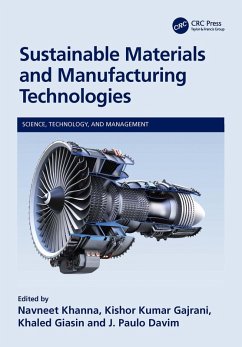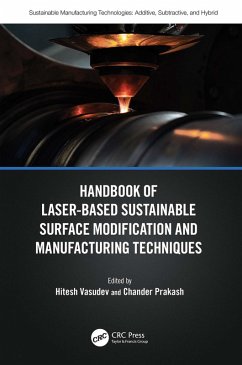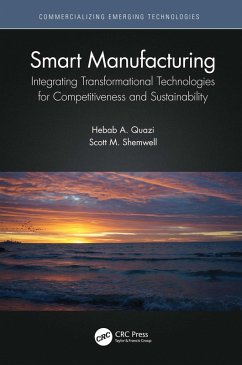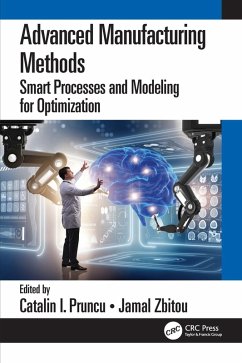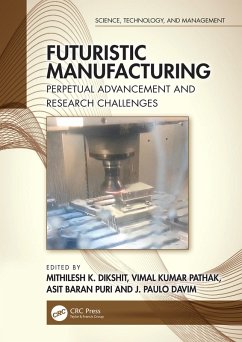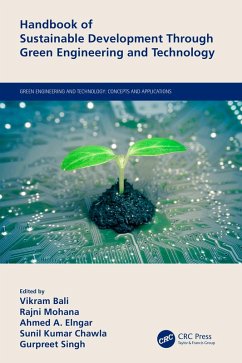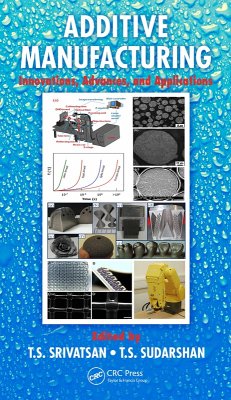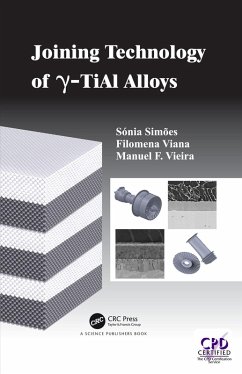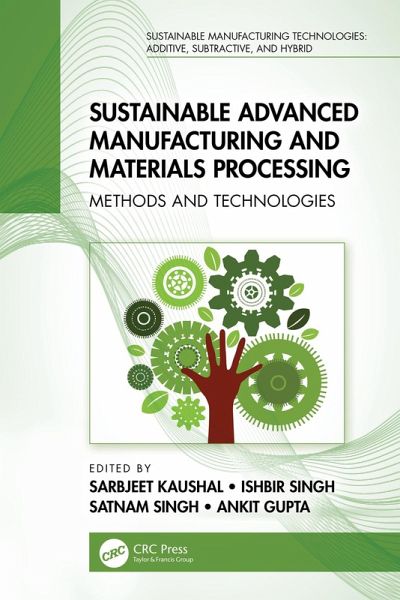
Sustainable Advanced Manufacturing and Materials Processing (eBook, PDF)
Methods and Technologies
Redaktion: Kaushal, Sarbjeet; Gupta, Ankit; Singh, Satnam; Singh, Ishbir
Versandkostenfrei!
Sofort per Download lieferbar
45,95 €
inkl. MwSt.
Weitere Ausgaben:

PAYBACK Punkte
23 °P sammeln!
This book encapsulates and highlights the most recent innovations, breakthroughs, and comparisons of advanced sustainable manufacturing and material processing techniques for high-performance materials applications with a focus on sustainability and using conventional available methods.Sustainable Advanced Manufacturing and Materials Processing: Methods and Technologies addresses the various sustainable manufacturing and materials processing techniques for advanced materials. It discusses advancements in conventional and non-conventional techniques used in casting, joining, drilling, surface e...
This book encapsulates and highlights the most recent innovations, breakthroughs, and comparisons of advanced sustainable manufacturing and material processing techniques for high-performance materials applications with a focus on sustainability and using conventional available methods.
Sustainable Advanced Manufacturing and Materials Processing: Methods and Technologies addresses the various sustainable manufacturing and materials processing techniques for advanced materials. It discusses advancements in conventional and non-conventional techniques used in casting, joining, drilling, surface engineering, sintering, and composite manufacturing. The book focuses on a wide range of manufacturing techniques and materials processing technologies along with their benefits, limitations, and sustainability quotient. The conventional and advanced processes are compared in parallel to understand the need for advanced methods in manufacturing technology.
This book is helpful to academic scholars and commercial manufacturers in giving them a first-hand source of information on sustainable manufacturing and material processing technology.
Sustainable Advanced Manufacturing and Materials Processing: Methods and Technologies addresses the various sustainable manufacturing and materials processing techniques for advanced materials. It discusses advancements in conventional and non-conventional techniques used in casting, joining, drilling, surface engineering, sintering, and composite manufacturing. The book focuses on a wide range of manufacturing techniques and materials processing technologies along with their benefits, limitations, and sustainability quotient. The conventional and advanced processes are compared in parallel to understand the need for advanced methods in manufacturing technology.
This book is helpful to academic scholars and commercial manufacturers in giving them a first-hand source of information on sustainable manufacturing and material processing technology.
Dieser Download kann aus rechtlichen Gründen nur mit Rechnungsadresse in A, B, BG, CY, CZ, D, DK, EW, E, FIN, F, GR, HR, H, IRL, I, LT, L, LR, M, NL, PL, P, R, S, SLO, SK ausgeliefert werden.




